Explained: The branches of Bangladesh's government
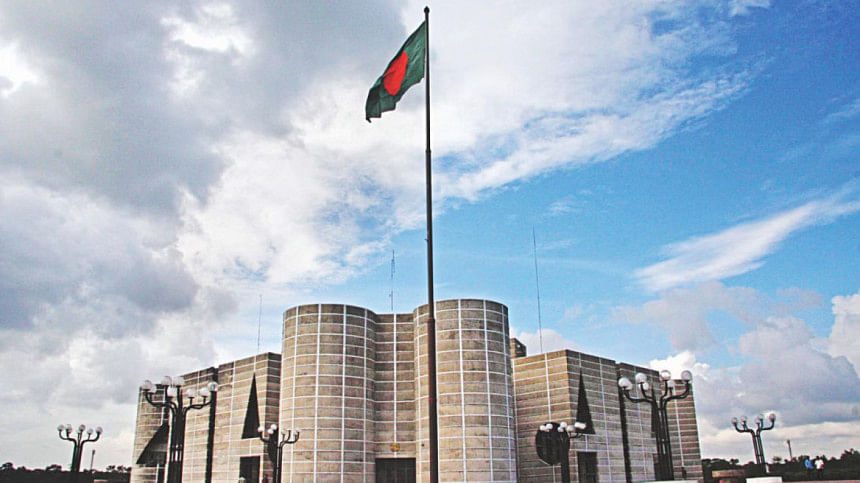
How does Bangladesh's government work? Who is the head of the government? What is the upcoming election about? These are some of the many questions our younger populace still has about our government. Despite being in function since the liberation war, many facets of our government are still shrouded in mystery for many.
Put simply, Bangladesh's government is democratic and unitary, meaning that the power of the state is vested in the hands of the citizens by means of voting, and only one central government exists in the country which is responsible for all the state duties.
A large chunk of these duties and regulations are carried out in accordance to the Constitution of Bangladesh, a supreme set of laws that provide the framework for the government. An important clause within the constitution dictates that three branches of government must come together and work in tandem as the governmental body. They are known as the Executive, the Legislative, and the Judiciary branches.
So, what exactly are these organs individually responsible for?
The executive organ is entrusted with the total administration of the country. It is responsible for a myriad of functions, such as education, security, development, etc. This organ is led by the President, who serves as the ceremonial head of state. Although the President plays a pivotal role in the government's stability and continuity, executive powers are largely vested in the Prime Minister, who is considered the head of government.
Next, various ministers make up the bulk of the executive organ. They oversee various government departments such as finance, education, health, foreign affairs, etc. However, ministers and government officials aren't the only ones included within the executive branch. Civil servants — all the way from district officers to secretaries and police officers — are all considered part of this organ. All these concerned authorities come together to formulate policies, manage public services, and implement national development plans.
The second pillar of Bangladesh's government, the legislative organ, also known as the Parliament, has quite a few important functions such as passing laws that affect the nation. Most importantly, however, it represents the voice of the people.
Citizens across the country vote to elect the Members of Parliament (MPs), the ones who take part in the parliamentary process. In this way, people's choices and visions are directly reflected in the composition of the legislative body as they get to choose the political parties they resonate with the most.
The upcoming parliamentary election to be held in January next year is being held for the same reason. Residents across the country will vote for representatives in their specific areas in order to build the parliamentary roster for the next five years.
After the election, robust debates and discussions take place within the Parliament so that MPs can bring forth issues and propose bills to address the needs and concerns of the citizens.
The Parliament is also directly related to the Executive organ as it serves as a platform for holding the latter accountable. Members of the legislative branch can question government policies, expenditures, and actions in a calendar year which is crucial for maintaining a healthy democracy.
Lastly, as the final organ of the government, Bangladesh's judiciary branch is in charge of interpreting the law, resolving conflicts, and maintaining justice across the nation. In the judicial department, the Supreme Court, which is separated into the Appellate Division and the High Court Division, is the highest court. It is led by the Chief Justice with the assistance of other justices.
The judiciary has the power to assess a law's constitutionality and offer legal remedies. Protecting citizens' rights, making sure the law is applied fairly, and preserving the balance of power within the government are all made possible by the court. Citizens can approach the courts to seek remedies for violations of their rights, making the judiciary a guardian of individual liberties. The country's legal landscape is also shaped by the judiciary's contributions to the creation and interpretation of the legal system. This system makes sure that everyone can access justice and that the rule of law is upheld.
Moreover, to maintain absolute impartiality and fairness, the Judiciary branch operates independently of other governmental branches.
In conclusion, Bangladesh's government would not be able to operate without the interconnected relationship between its three organs. Together, they form the bedrock of the nation's democratic framework, ensuring that the principles of justice, equality, and accountability are upheld. As the nation continues to evolve, the government's steadfast commitment to these values remains crucial.

 For all latest news, follow The Daily Star's Google News channel.
For all latest news, follow The Daily Star's Google News channel. 

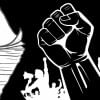
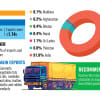
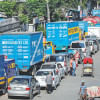
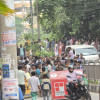



Comments